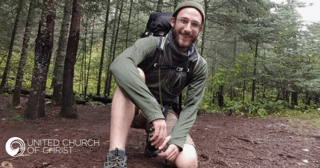 Special to South Florida Times
Special to South Florida Times
WEST PALM BEACH — Military veterans often have to fight a new war when they return home. Army veteran Roy Foster wants them to know they do not have to fight these battles alone.
Foster founded an organization known as Stand Down House and recently helped organize Stand Down Against, a resource fair to provide veterans and their families with legal services, financial and housing advice and education assistance.
The June 30 fair held at the Meyer Amphitheatre, 104 Datura St., West Palm Beach, was sponsored by Stand Down House in partnership with the U.S. Department of Labor and the Veterans Administration Medical Center of West Palm Beach.
About 700 veterans had access to more than 40 vendors and resources, such as Veterans Administration enrollment and benefits, health screenings, haircuts, obtaining IDs, job opportunities, housing and educational assistance.
Court officials were also on hand. “Special dockets were set aside for veterans at the event in an attempt to direct them into treatment for mental health issues,” Foster said. “These issues that they might be challenged with, as opposed to going to jail. It’s an alternative.”
Stand Down House is a transitional living facility that helps homeless male veterans receive treatment for mental health problems, substance abuse and with finding jobs.
Foster knows firsthand about struggling with personal wars, including addiction and homelessness.
The recipient of the 2009 CNN Hero award for his work helping hundreds of homeless veterans get off the streets and reintegrate into society says he has seen some dark days.
Homeless, helpless and hopeless is how Foster described himself at one of the lowest points of his life.
An Army veteran, he struggled with drug addiction and alcoholism but an intervention and a 30-day stint in the Miami VA Hospital was the start of a long road to recovery.
Veterans around the nation often return home and have difficulties finding employment, accessing health care and obtaining affordable housing.
Some veterans suffer from post traumatic stress disorder (PTSD) and substance abuse, which can hinder their finding or holding on to jobs, and some end up homeless.
Mental illness, including PTSD, affects thousands of veterans returning home from war each year. Going back into civilian life could prove difficult, leading to stress with family and friends and on the job.
Homelessness is also prevalent, according to the National Coalition for the Homeless, with about 40 percent of homeless men being veterans, although veterans comprise only 34 percent of the adult male population in the nation.
Foster said agencies are available to assist veterans with paperwork so that they can obtain their full benefits and get the help they need.
Stand Down programs are part of a national initiative serving veterans and their families helping with food and clothing, mortgage and utility payments, transportation and housing.
Foster said whenever anyone in the community hears about a “Stand Down” event, he or she should inform friends and family members who have served in the armed forces.
Many vets are unaware of the services available to them, which is why these events nationwide are so important, he said.
“It’s about vets, their families and their needs. It’s a time for them to find out about the resources that they are entitled to,” Foster said.
For information about Stand Down events and services call 561- 968-1612.
Photo: Roy Foster












No Comment